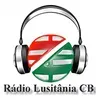Amateur radio Live Radio Stations
Radio Stations
Choose a Genre
Amateur Radio: Connecting the World, One Signal at a Time
Amateur radio, often referred to as ham radio, is a fascinating hobby and service that allows individuals to communicate with people around the world, explore technical aspects of radio communication, and contribute to emergency efforts during crises. For hobbyists and tech enthusiasts alike, amateur radio offers an exciting blend of experimentation, communication, and service to the community.
At its core, amateur radio is about non-commercial communication. Operators, known as hams, use designated frequencies across a wide spectrum of bands to connect with other radio operators globally. These communications can range from casual chats to sharing technical knowledge, and even participating in contests to see who can make the most connections within a given time. The diverse methods of communication include voice transmission, Morse code, digital modes, and more, making amateur radio a rich and versatile hobby for anyone interested in radio technology.
To become an amateur radio operator, individuals must first obtain a license from their national regulatory body. The licensing process typically involves passing a test that ensures a basic understanding of radio laws, operating procedures, and technical skills. Once licensed, hams gain access to various frequencies, enabling them to communicate with fellow radio enthusiasts worldwide. This process not only promotes safe and effective communication but also fosters a deeper understanding of radio technology and global connectivity.
Amateur radio plays a critical role in emergency communication, especially during natural disasters or other events where traditional communication systems may fail. Many hams provide valuable support by establishing emergency networks, coordinating rescue efforts, and offering a communication lifeline to those in need. This altruistic aspect of the hobby highlights the sense of community and social responsibility that many amateur radio operators embrace.
Amateur radio is also an excellent platform for experimentation. Hams are often involved in creating new equipment, developing innovative technologies, and advancing the science of radio communications. The hobby fosters a spirit of curiosity and technical exploration, whether you're designing antennas, experimenting with digital modes, or trying to reach the farthest corners of the globe with low-powered equipment.
Amateur radio is supported by various organizations around the world, such as the American Radio Relay League (ARRL) in the United States and the Radio Society of Great Britain (RSGB) in the UK. These groups offer training, resources, and a network of like-minded individuals, providing opportunities for hams to learn, share, and collaborate.
In conclusion, amateur radio is more than just a hobby—it's a global community of communicators, innovators, and volunteers. Whether you're fascinated by the science of radio waves, eager to connect with fellow enthusiasts, or interested in lending a hand during emergencies, amateur radio provides a unique and rewarding experience for people of all ages and backgrounds.
Amateur radio, often referred to as ham radio, is a fascinating hobby and service that allows individuals to communicate with people around the world, explore technical aspects of radio communication, and contribute to emergency efforts during crises. For hobbyists and tech enthusiasts alike, amateur radio offers an exciting blend of experimentation, communication, and service to the community.
At its core, amateur radio is about non-commercial communication. Operators, known as hams, use designated frequencies across a wide spectrum of bands to connect with other radio operators globally. These communications can range from casual chats to sharing technical knowledge, and even participating in contests to see who can make the most connections within a given time. The diverse methods of communication include voice transmission, Morse code, digital modes, and more, making amateur radio a rich and versatile hobby for anyone interested in radio technology.
To become an amateur radio operator, individuals must first obtain a license from their national regulatory body. The licensing process typically involves passing a test that ensures a basic understanding of radio laws, operating procedures, and technical skills. Once licensed, hams gain access to various frequencies, enabling them to communicate with fellow radio enthusiasts worldwide. This process not only promotes safe and effective communication but also fosters a deeper understanding of radio technology and global connectivity.
Amateur radio plays a critical role in emergency communication, especially during natural disasters or other events where traditional communication systems may fail. Many hams provide valuable support by establishing emergency networks, coordinating rescue efforts, and offering a communication lifeline to those in need. This altruistic aspect of the hobby highlights the sense of community and social responsibility that many amateur radio operators embrace.
Amateur radio is also an excellent platform for experimentation. Hams are often involved in creating new equipment, developing innovative technologies, and advancing the science of radio communications. The hobby fosters a spirit of curiosity and technical exploration, whether you're designing antennas, experimenting with digital modes, or trying to reach the farthest corners of the globe with low-powered equipment.
Amateur radio is supported by various organizations around the world, such as the American Radio Relay League (ARRL) in the United States and the Radio Society of Great Britain (RSGB) in the UK. These groups offer training, resources, and a network of like-minded individuals, providing opportunities for hams to learn, share, and collaborate.
In conclusion, amateur radio is more than just a hobby—it's a global community of communicators, innovators, and volunteers. Whether you're fascinated by the science of radio waves, eager to connect with fellow enthusiasts, or interested in lending a hand during emergencies, amateur radio provides a unique and rewarding experience for people of all ages and backgrounds.


